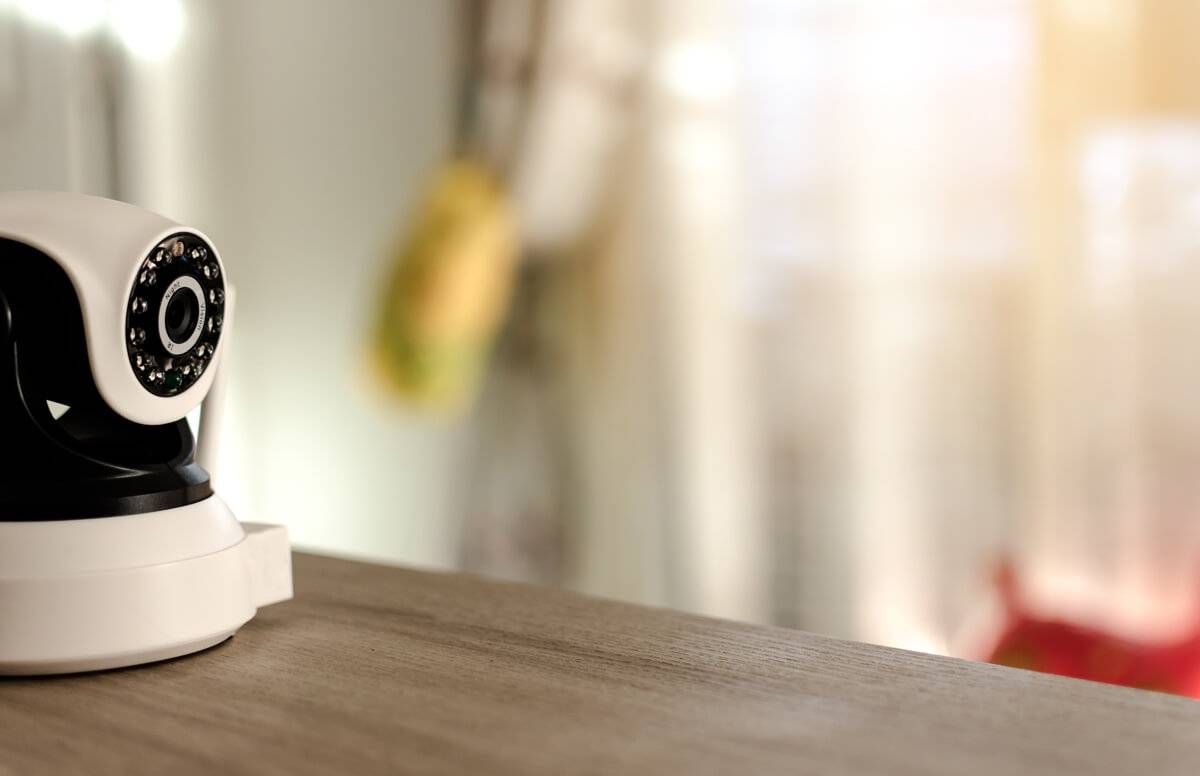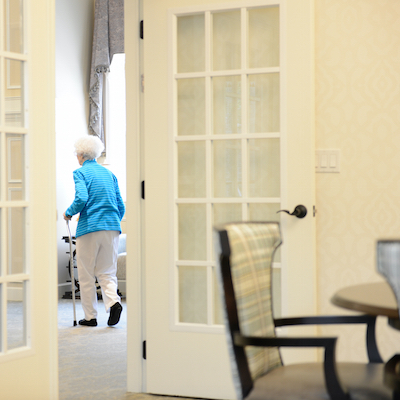The use of cameras in these areas creates a significant patient privacy problem for facilities. Cameras are a proven way to keep residents patients and staff safe from.
 Pros And Cons Of A Nursing Home Surveillance Camera
Pros And Cons Of A Nursing Home Surveillance Camera
And because that may violate the residents privacy cameras are not permitted.

Cameras in assisted living facilities. In some cases cameras can help to kickstart the development of trust between staff and families but in others the presence of cameras may undermine this initiative from the get-go. If your loved one is receiving care at home the obvious presence of such cameras may discourage theft and abuse and provide evidence if it occurs. New Jersey does not have a law specifically permitting cameras but it has a program.
Setup Advice for Assisted Care Facilities Put cameras in open areas where residents and staff congregate. She died not long after the. This allows the family to monitor their loved ones well-being and alert the facility should they see something wrong since staff is not usually in the room with the resident 24 hours each day.
Florida Statute Section 93403 1 a prohibits the interception and disclosure of wire oral or electronic communications. For the purpose of this article however we are going to look only at the role IP internet protocol video surveillance cameras play as a means of deterring detecting and investigating incidences at assisted living and other residential settings for older adults and disabled individuals. A few states have guidelines but no law.
94-year-old Curliene Golden was sexually assaulted by a facility intruder. Security breaches in assisted living facilities have made the news numerous times. If you are videoing someone they have to be told.
Most nursing homes use security cameras to monitor common areas parking lots and exits. Many people think of elder abuse only in the context of nursing homes assisted living facilities and skilled nursing units. Two more states are pushing ahead with camera monitoring laws within assisted living.
When you signed the papers to admit her if there was any paragraph that said hidden cameras arent allowed you could possibly be prosecuted. Almost everyone can find a need for them within their day to day lives. The process is usually filed as an application to the director of the assisted living facility.
Many states do allow families to install cameras. Congregate living facilities are covered entities under HIPAA and a patients medical information including visual information is protected. Onus on Healthcare Providers to Protect Privacy Public reactions to this proposed law are mixed.
Each person has their own ideas and opinions regarding trust and privacy but the understanding is usually that one must give trust and respect in order to receive these things in return. Timothy Hawkes R-Centerville is reviving a bill that would permit residents of assisted living facilities or their representatives to install cameras in their rooms. However abuse and neglect can occur in a persons own home by those charged with.
A Case for Enhanced Security in Assisted Living Facilities. It is done by the client or the family and relatives of. Regulatory agencies have addressed the use of cameras in assisted living settings reports how cameras are used in assisted living facilities proposes a case-specific evaluation of potential privacy violations through use of a weighted matrix and provides best practices for camera use in assisted living.
Activity areas dining halls TV rooms and hallways. The use of cameras in resident rooms is not prohibited in the absence of state law. Cameras would be permitted in hallways dining areas recreation rooms and living areas.
However nursing homes would not be allowed to install cameras in residents rooms which is often where they are most vulnerable. The current policy followed by most of the assisted living facilities and nursing homes in the United States is on the process of a written or formal permission to install monitoring cameras for their nursing suite or room. Some professional caregivers may fully understand and agree with a familys.
Perhaps one of the most heartbreaking stories in recent years occurred in 2018 at an ALF in Clayton Georgia. Allowing a resident to be video-recorded without their consent may violate HIPAA and result in the imposition of sanctions by the Office. Place cameras strategically in entryways and reception areas so you get a clear shot of each visitor as they enter and exit.
Often daily life at these facilities is extremely dynamic. Cameras may also be installed in the residents private rooms in some cases. Putting hidden cameras in nursing homes is a VERY touchy subject.
But the issue raises privacy concerns for residents and visitors. California for example has guidelines for facility-initiated camera use in assisted living and Maryland has guidelines for nursing centers if they choose to allow individuals to install cameras. Utah permits cameras in assisted living facilities.
By Daphne Chen Jan 18 2016 203pm MST Rep. However Florida has no enabling statute allowing surveillance cameras in nursing home and assisted living communities. In fact the law on point closest to addressing secret surveillance is a prohibition.
At least six states -- Illinois Louisiana New Mexico Oklahoma Texas and Washington -- have passed laws permitting families to install a camera in a nursing home if the resident and the residents roommate have agreed. Public buildings must post a sign saying surveillance cameras are in use. Not every nursing home allows these cameras however.
In-room cameras provide an additional layer of security for family members who may be afraid of nursing home abuse. The Utah bill House Bill 124 also prohibits any assisted living facility from retaliating against a resident. The number of businesses and facilities that have camera systems in 2017 is staggering.
Nursing homes are no exception and probably need surveillance more than anyone else.